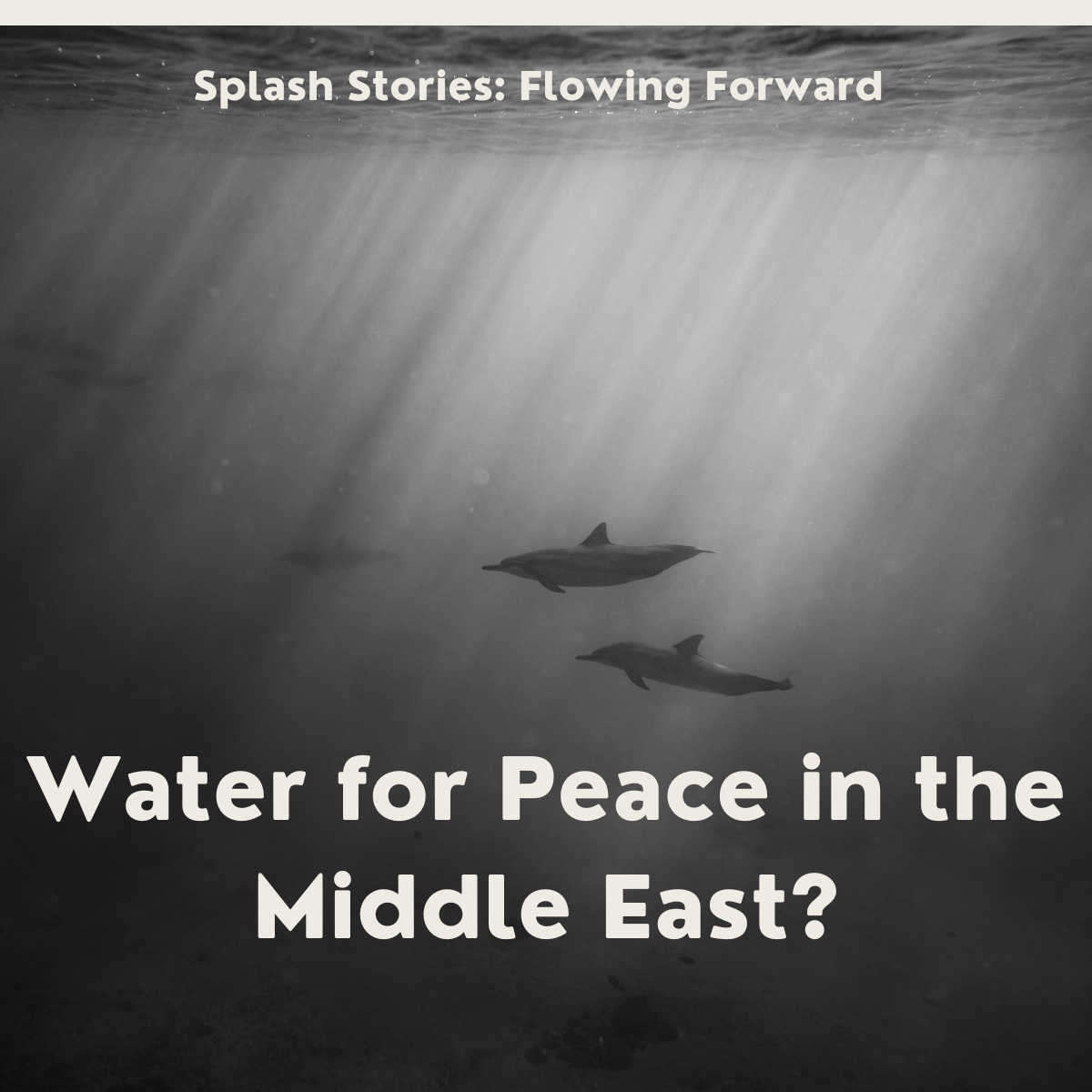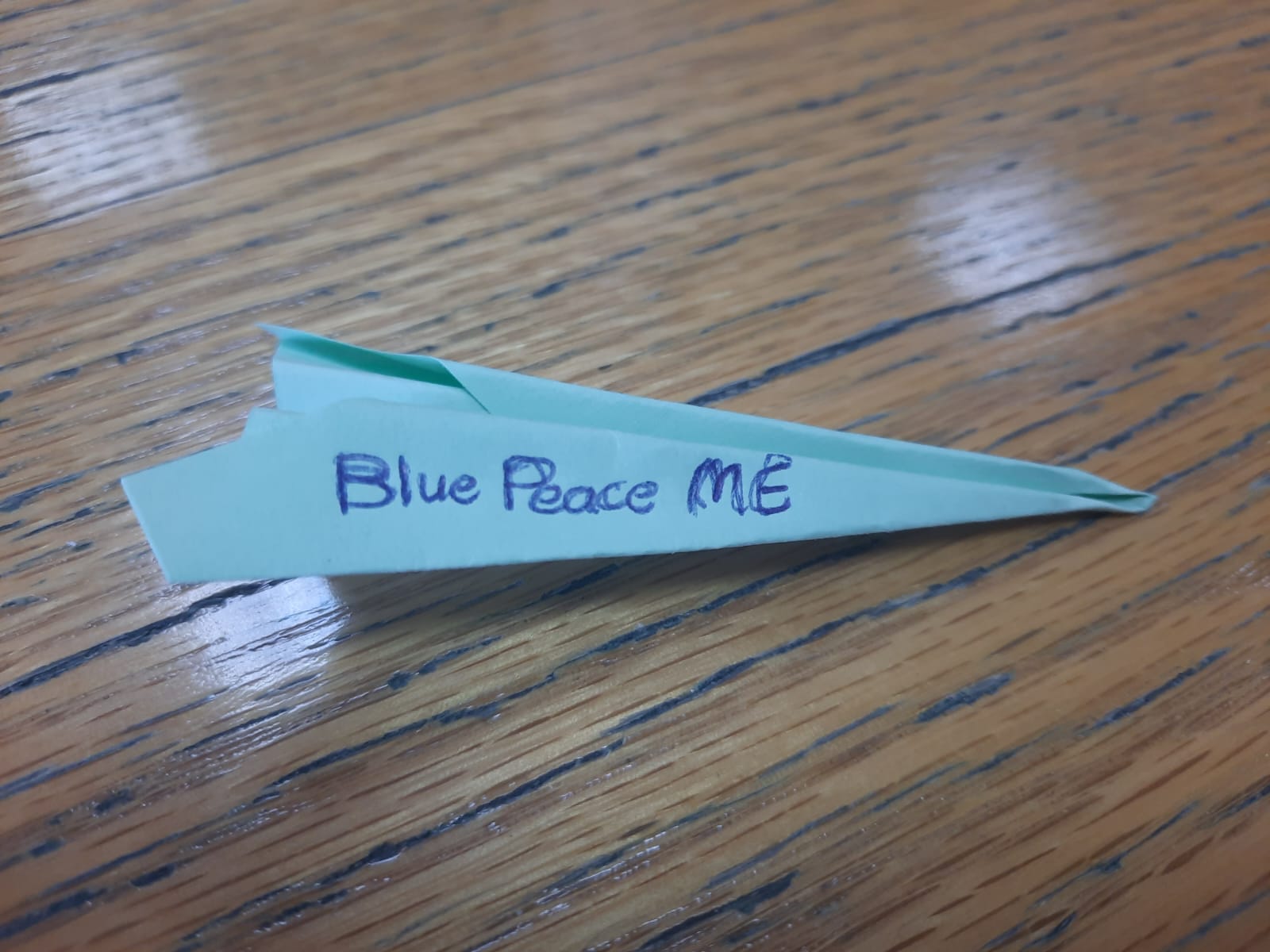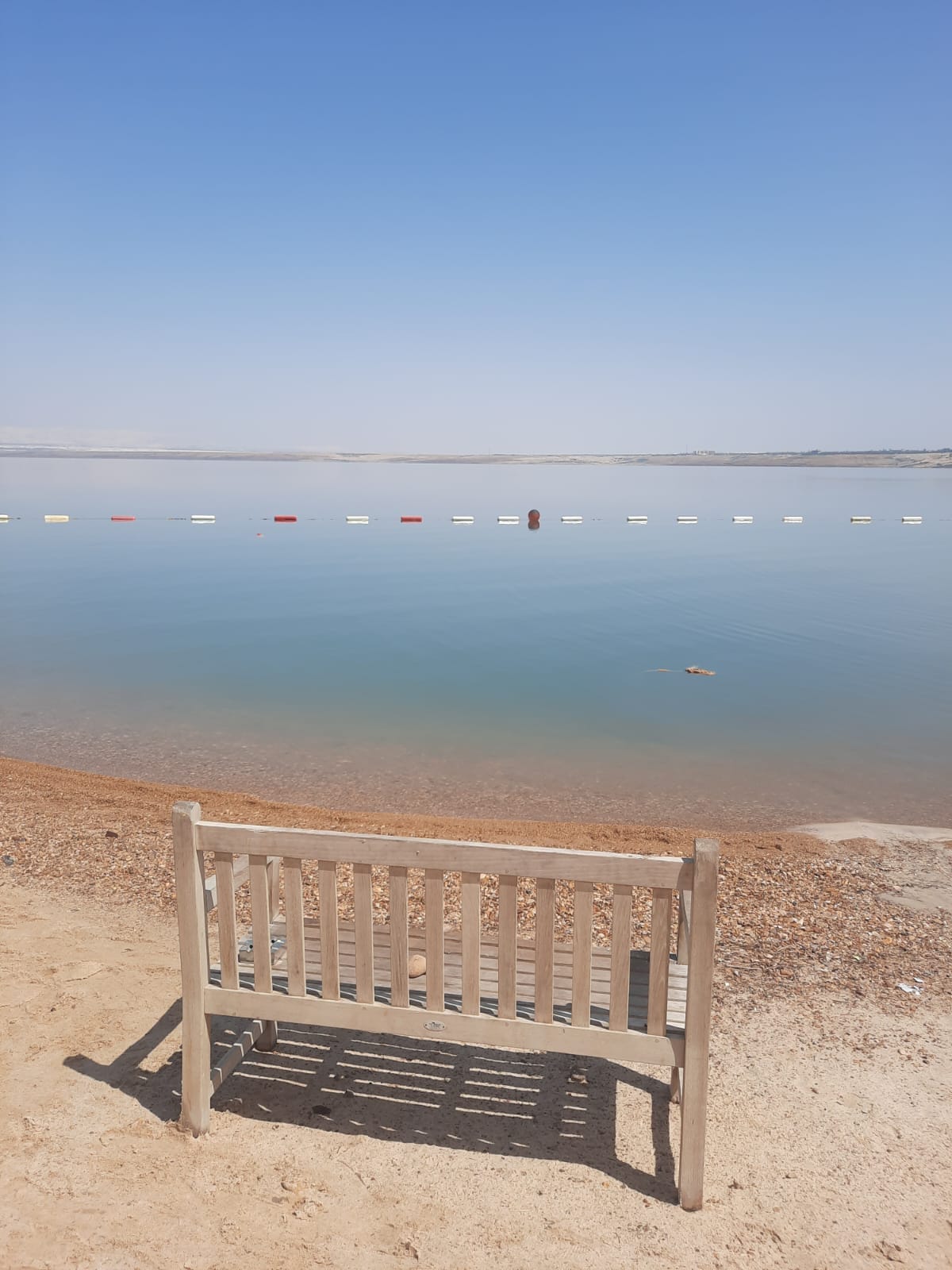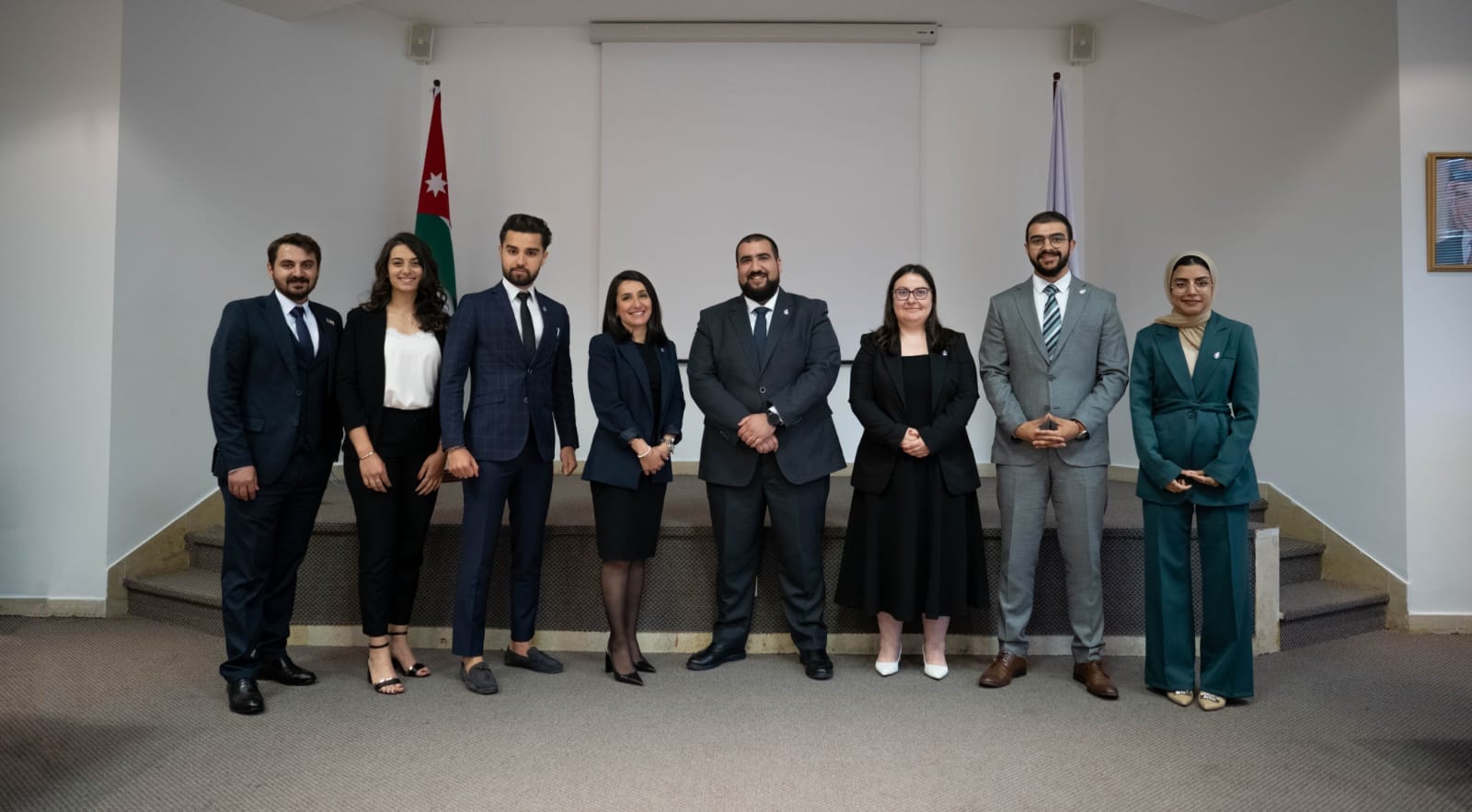Will water ever be a tool for peace building in the Middle East?

By the end of July 2024, the Blue Peace Middle East concluded its inaugural Youth Fellowship Programme (YFP), a ground breaking initiative that brought together bright minds from Iran, Iraq, Jordan, Lebanon, Syria, and Türkiye. The goal was to foster sustainable development and peace through transboundary water cooperation. I had the immense pleasure to be part of this pioneering initiative in the Middle East region representing Syria. I cannot count the unforgettable memories, nor I can measure the knowledge shared at all levels.
The fellowship wasn't just about academic learning and hydropolitics discussions; it was also a cultural odyssey. Each meal was a celebration of our diverse heritages; who could forget the fantastic food we tasted, from the Jordanian Mansaf to the Iraqi Maskof or Turkish Iskender Kebab?. Who could forget the Uber rides, sometimes with a D.J or 5 of us crammed in one taxi? Yalla, “Ça va” we managed to reach safely without fines or broken bones. Who could forget the first meeting in INWRDAM Offices and meeting the amazing Coordination Office of Blue Peace Middle East? I guess Aseel will not forget me nagging about Blue Peace ME’s stationary. However, we got them finally, a well-designed pin. so “Khalas”. Who could forget the billiard contest between the professionals and fast learners, or even the funny UNO nights? All turned our fellowship into a vibrant movie with 6 leading actors and actresses who share a dream and passion of a borderless region where water is a source of unity rather than conflict.
Now I will play the UNO Card that changes the colour of the blog to “more professional in a serious way” reflection on the fellowship’s objectives and outcomes.
The fellowship was designed to empower young leaders in the region to address water-related challenges through cooperation and innovation. This aligns with Blue Peace Middle East’s overarching objective of "transforming water from a potential source of conflict into an instrument of cooperation and peace through dialogue, capacity building and concrete action."
The fellowship posed a critical question: “How can water be a tool for peace?”. In particular when we reflect on the water landscape in the Middle East that has been fraught with challenges over the past decades. Inconsistent negotiations, violated agreements, and limp handshakes, leaving hopes dashed.
Therefore, during our journey of learning, we explored critical issues like climate change, water scarcity and the intricate dynamics of transboundary waters. We discussed the profound value of water for each country understanding how water is at the core of development, intricately connecting and being connected with other sectors. These discussions were vital conversations about the very fabric of development in our region. We negotiated potential benefits that cooperation can bring. We recognised the mutual gains that could be harvested if nations worked together, and most importantly, we acknowledged the high costs of inaction in the long term. The wisdom of distinguished experts in water diplomacy and hydro-politics guided us, offering lessons learnt from other transboundary basins around the world.
Our experience wasn’t confined to classrooms or theoretical frameworks. We participated in field visits that brought to life the Water- Energy -Food and Ecosystem (WEFE) Nexus. These visits underscored the importance of integrating water at the core of development plans, illustrating the tangible benefits that could be realised when such integration occurs e.g. the case of Al Samra wastewater treatment plant, hydroponics farm, and the private research farm. Furthermore, we have seen the calm water of Umm Qais contrasted with the turbulent currents beneath, symbolising the complexities of water management at the regional level. The well-maintained water heritage site of Umm Jimmal showed us how historical infrastructure still holds great value to the local communities today.
The ancient city of Petra, a jewel of our heritage, presented another example of our ancestors' profound understanding of water infrastructure. Petra still stands as a testament to the knowledge that once flourished in our region. This observation led me to a poignant reflection: when did we, in the Middle East, lose our identity as water civilisation? We are the heirs of Mesopotamia, the land between two rivers, and Persia, the country beyond the rivers. How did we move away from this legacy?
In addition, our discussions also brought to light diverse opinions on water solutions for the region, highlighting varying approaches and perspectives. We heard from proponent of nature-based solutions as a response to water scarcity, advocates for the Jordanian desalination plans, and those who maintain a narrative of external blame for our water woes without fully questioning the signed agreement or admitting the mistakes.
This journey has been an eye-opening experience, reinforcing the idea that water is not just a resource but a critical element of our identity, our history, and our future. But to me personally, there was another important lesson, crucial one.

The Blue Peace Middle East Fellowship has been a bridge of understanding between six young fellows from diverse cultures in a region historically claimed to be well-acquainted with one another. This represents the essence of true education. Why is this even important?
Remember the objective of Blue Peace Middle East!
“transforming water from a potential source of conflict into an instrument of cooperation and peace through dialogue, capacity building and concrete action”.
Dialogue, capacity building, and concrete actions have never been more essential than in the past decade, given the difficult conditions we face as a region.
One crucial realization from our fellowship is the need for a moral language of conscience and an emotional conversation of the heart. There is often a missing element in our regional discourse driven by long period of conflict and strong divide—the humanitarian perspective that allows us to see through another person’s eyes and empathize, person to person, neighbour to neighbour, us to them.
Why is that important?
Simply because without knowing the neighbour, we cannot work together …
Without understanding not only our needs but “their” needs, we cannot be flexible and creative in forging strong partnerships between the Blue Peace Middle East Countries.
You may ask, how six fellows set an example of the very fact about transcending our differences and focus on common goals.
Here is the answer from my own experience.
We arrived to Amman carrying the weight of our own national stereotypes, and the instinct to protect our own interests at all costs. Each of us was pulling the robe towards our own direction, triggered by the mindset that whispered “I must win, and even if I lose some ground, I will ensure no one else gains”. This competitive attitude coloured our early interactions driven by a narrow focus on national benefits.
However, as the days passed, a profound transformation took place. Living together, sharing our own experience, open dialogue, and the willingness to step into other’s shoes allowed us to see a different perspective. The barriers that once separated us broke down, and bridges of understanding were rising. We were able to understand the human on the other side of the table. Not as an enemy or opponent by as a human with legitimate needs, demands and hopes. We discovered that cooperation is not a zero- sum game. “I win, you lose”. Instead, we embraced the idea that true progress comes from searching for solutions that could bring mutual benefits to all of us, rather than focusing solely on personal or national gains.
We learnt that the true progress comes from a common ground.
Is there a room in the Middle East among the Blue Peace Middle East countries for such common ground?
“definitely”.
It is a room where national identity, historical grievances and deeply held creed do not get in the way, or dictate our interactions.
– not because those things do not exist or are dismissed, but they are intentionally set aside because what really matters rise above all else.
In the common room, we focus on the values that we share and unite us – the basic belief that each of us is worthy of respect.
Our hopes and dreams are recognised.
Our challenges are seen as obstacles we can and must overcome together.
Our aspirations, our struggles and our desire for respect and understanding are acknowledged.
This room represents more than just a physical space; it is our “safe space” where we can strive to understand one another’s perspective…
to ask, and to listen…
to share, and to trust…
to assume the best from one another, not the worst.
to examine the landscape from different angles.
to assume we are all sharing the waters and have the right to get the water not “upstream” or “downstream” persepectives.
to see different shades of light that will illuminate the forever lived “ghosts”.

However, the common room is not a place to play billiard…
It is not a place where we sit on the couch drinking “apple juice” and watching Turkish Drama, whether dubbed or not.
In the common room, we need to enrich one another’s diversity and equity.
Diversity, whether it's a different cultural perspective, a new way of thinking, or a fresh idea that challenges the status quo, should be celebrated.
Equity at the regional level, should be embraced to unlock the full potential of dialogue, capacity building, and concrete actions, creating a foundation for more effective and inclusive outcomes.
Again, the fellowship posed a critical question: “How can water be a tool for peace?”.
How can we do that?
Open and honest dialogue allows us to bridge gaps, resolve conflicts, and find common ground.
Capacity building is equally crucial, as it empowers individuals and communities with the knowledge, skills, and resources needed to respond effectively to current and future challenges.
Concrete actions are where dialogue and capacity building come to fruition. Whether it’s through policy changes, community initiatives, or collaborative projects, these actions are the driving force behind real progress.
In these times of difficulty, talk alone is not enough; neither walk alone.
Very optimistic? Maybe!
However, pessimism doesn’t change the reality; it prolongs the status quo. It brings everyone down.
As we return to our respective countries, we carry with us the lessons learned, the friendships forged, and the vision of cooperation and development.
